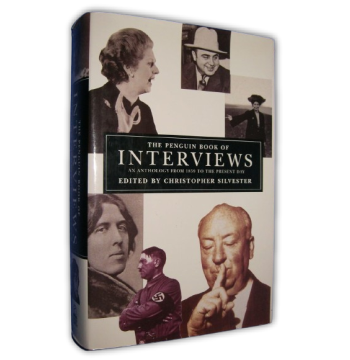"The Interview" compiled by Christopher Silvester, presents a fascinating exploration into the art and significance of interviews, drawing from a diverse array of conversations with prominent figures across various fields. This collection provides insight into the minds of celebrities, politicians, artists, and other influential personalities, highlighting the nuances of the interview process. Silvester's work sheds light on the dynamics between interviewer and interviewee, the power of questions, and the revealing nature of responses that offer deeper understanding of public figures. Through these curated interviews, readers are invited to consider the complexities of communication, the construction of public personas, and the role of media in shaping perceptions. "The Interview" serves as an intriguing read for Class XII students, offering them a unique perspective on the impact of dialogue in uncovering truths and fostering connections in the public domain
Author:
Christopher Silvester
Source/Excerpt From:
The chapter is an introduction to “The Penguin Book of Interviews,” an anthology edited by Christopher Silvester. It explores the history, significance, and various perspectives on the interview as a journalistic genre.

“The Penguin Book of Interviews: An Anthology from 1859 to the Present Day,” edited by Christopher Silvester, includes a wide range of interviewees, from Karl Marx, Giuseppe Verdi, Mao Tse Tung, Ginger Rogers, and John Lennon, to notable interviewers like Tom Driberg, Truman Capote, Djuna Barnes, and Alistair Cooke. It showcases intriguing pairings such as Josef Stalin interviewed by H.G. Wells, Joseph Heller by Mel Brooks, and a unique interview with Oscar Wilde by himself, providing a rich tapestry of perspectives and insights across various fields and eras.
Central Theme:
The central theme of the chapter is the exploration of the interview as a vital form of journalism that has evolved over the years. Silvester discusses the interview’s role in shaping public perception of celebrities, intellectuals, and political figures, its ability to reveal truths, and the controversies surrounding its practice, including concerns over privacy and the manipulation of public image.
Summary:
“The Interview” by Christopher Silvester delves into the complexities and nuances of interviews as a genre of communication. Silvester examines how interviews have become a cornerstone of journalistic practice, offering insights into the personal lives and thoughts of public figures. The chapter considers the interview both an art form capable of revealing profound truths and a controversial practice viewed by some as an invasion of privacy. Through examples and analyses, Silvester highlights the diverse opinions on interviews, ranging from their celebration as a source of knowledge and insight to criticism for their potential to misrepresent or harm subjects. The text also touches on the evolution of interviews over time and their impact on both the interviewee and the audience, ultimately presenting a multifaceted view of this ubiquitous communicative practice.
Characters:
The chapter does not detail characters in the traditional sense but references various public figures, interviewers, and intellectuals to illustrate points, including V.S. Naipaul and Rudyard Kipling, among others.
Important Quotes:
Specific quotes are not provided in the excerpts, but Silvester discusses the varied perceptions of interviews, from their value in uncovering truth to criticisms of their invasive nature.
Important Facts Mentioned:
The interview has been a significant journalistic tool for over 130 years, evolving in practice and perception, shaping public discourse and individual reputations through the dialogue between interviewer and interviewee.
Questions with Answers:
Question: What is the significance of interviews according to Christopher Silvester?
Answer: Silvester suggests that interviews play a crucial role in journalism by providing deep insights into individuals’ lives and thoughts, influencing public understanding and discourse.
Question: How does “The Interview” explore the controversies surrounding interviews?
Answer: The chapter addresses controversies by discussing the interview’s potential to invade privacy and the discomfort it may cause subjects. It reflects on historical criticisms and the belief in some cultures that capturing one’s image or words can steal a person’s soul, illustrating the complex ethical considerations surrounding the practice of interviewing.
